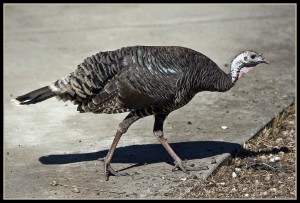By Izzah Zaroon
`Eid al-Adha falls during the Thanksgiving holiday weekend this year. Thanksgiving marks an American tradition of celebrating the harvest and expressing gratitude. This sense of gratitude is an important value taught in Islam. Since both holidays are falling in one weekend, it is important to stress the sense of gratitude that Islam teaches along with the blessings that are bestowed on us with celebrating `Eid. As many of us prepare halal turkeys and all the fixings, along with the ethnic flare of a side dish of biryani or hummus, it is important to prepare for `Eid festivities and keep our traditions strong, especially with younger children.
`Eid al-Fitr and Eid al-Adha are the two main religious holidays in Islam. `Eid al-Adha translates to “Festival of Sacrifice,” and marks the end of Hajj – the annul pilgrimage that every Muslim must make at least once in their lives. During the rites of Hajj, the Abrahamic rites and rituals are reenacted, most notably the sacrifice that the Prophet Ibrahim made of his son, who was miraculously replaced by a lamb. Can you imagine the sense of gratitude the Prophet must have felt as he removed his blindfold to find his son well and alive? From this momentous example, it is important to rejoice and express gratitude for the even the smallest favors that are granted from Allah.
As one rises on the morning of `Eid and starts the preparations for the Eid Salat, here are a few sunnah to remember:
- Wake up early.
- Prepare for personal cleanliness; take care of details of clothing, etc.
- Take a Ghusl (bath) after Fajr.
- Brush your teeth.
- Dress up, putting on best clothes available, whether new or cleaned old ones.
- On Eid al-Adha, eat breakfast after prayer or after sacrifice if you are doing a sacrifice.
- Go to the prayer ground early.
- Offer Salat al-`Eid in congregation in an open place except when the weather does not permit.
- Use two separate routes to and from the prayer ground.
- Recite Takbir on the way to Salat and until the beginning of Salat al-`Eid.
After salat, common practices are to gather at family or friend’s houses and mingle. `Eid parties, dinners and gift-giving are very common. In south Asian and east Asian countries it is very common to have festivals that last three to four days. The festivities include henna tattoos, buying colorful jewelry and clothes, and decorating homes with beautiful lights and signs. Visting any Muslim country one would be able to feel `Eid in the environment.
Unfortunately, growing up in America, under heavy advertising for Thanksgiving, Christmas and Black Friday, sometimes it may not feel like `Eid. Therefore it is very important that each household go out of its way to make `Eid important. My parents (being immigrants from Pakistan) took it upon themselves to make sure that `Eid was celebrated in our house. They stressed the importance of family gatherings, visiting elders, and enjoying `Eid with our friends. My mother would dress my sister and me in brightly colored dresses on `Eid, take us to the Mosque to pray in congregation and meet and greet. This was followed by visiting friends and family at their houses, and culminated at our home with a large feast. Our family would be joined by extended family and friends that may be stopping by, the spread would be over the top along with a selection of sweets. The fun part of Eid was seeing all the festive flare and just the happiness that spread from being in the company of loved ones. It important not to forget our blessed holidays of Eid ul Fitr and Eid ul Adha.

Leave a Comment